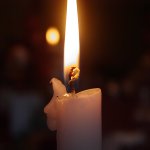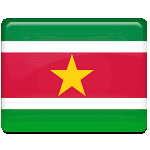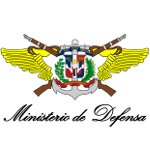Holidays Calendar for February 25, 2022
February 25 is annual celebration of National Day in Kuwait. This national holiday celebrates gaining of independence from the United Kingdom and coronation of sheikh Abdullah Al-Salim Al-Sabah.
People Power Day (also EDSA Revolution Anniversary) is annually observed on February 25 in the Philippines. This is a special observance for the country: it's a non-working holiday only for schools.
Revolution Day in Suriname is annually observed on February 25. This holiday was established by President Desi Bouterse to celebrate the military coup in 1980.
Armed Forces Day (Día de las Fuerzas Armadas) in the Dominican Republic is celebrated on February 25. It commemorates the anniversary of the foundation of the country's military and the birthday of Matías Ramón Mella, a national hero of the Dominican Republic.
National Radio Day (Wan Witthayu Krachai Siang Haeng Chat) in Thailand is celebrated on February 25. It is considered the professional holiday for employees of all radio stations in the country.
Some former republics of the Soviet Union have remembrance days, connected with the Soviet occupation time. Among these countries is Georgia, that observes Soviet Occupation Day on February 25.
 Anniversaries and Memorial Days →
Hungary
Anniversaries and Memorial Days →
Hungary
Memorial Day for the Victims of the Communist Dictatorships in Hungary
February 25 is a special day for the Hungarians. They observe Memorial Day for the Victims of the Communist Dictatorships.
If you're nuts about nuts, then you'll love National Chocolate Covered Nuts Day. This holiday is celebrated annually on February 25.
On February 25, Americans celebrate one of the most popular dishes of American cuisine – clam chowder. On National Clam Chowder Day, treat yourself to a bowl of this delicious, hearty soup originating from New England.
Festivals for February 25, 2022
- Pensacola Mardi Gras in Pensacola, USA
- Carriacou and Petite Martinique Carnival (Kayak Mas) in Hillsborough, Grenada
- Carnival of Las Palmas de Gran Canaria in Las Palmas de Gran Canaria, Spain
- Maltese Carnival in Valletta, Malta
- Carnival of La Bañeza in La Bañeza, Spain
- Inter Varsity Folk Dance Festival in Sheffield, United Kingdom
- Las Tablas Carnival in Las Tablas, Panama
- César Awards in Paris, France
- FEST (Belgrade International Film Festival) in Belgrade, Serbia
- Carnival of Monthey in Monthey, Switzerland
- Fuego Austral in Buenos Aires, Argentina
- Carnival of Mazatlan in Mazatlan, Mexico
- Lucerne Carnival in Lucerne, Switzerland
- Guaranda Carnival in Guaranda, Ecuador
- Vilnius Book Fair in Vilnius, Lithuania
This Day in History
- 2025 Died: Roberto Orci, Mexican-American film and television screenwriter and producer known for his longtime collaboration with Alex Kurtzman, whom he met at high school.
- 2017 Died: Bill Paxton, American actor and filmmaker known for his roles in Aliens, Near Dark, Tombstone, True Lies, Apollo 13, Titanic, Mighty Joe Young, and other films.
- 2016 Three people were killed and fourteen others injured in a series of shootings in Newton and Hesston, Kansas, including in and outside an Excel Industries building.
- 2013 Died: Allan B. Calhamer, American game designer, creator of the board game Diplomacy, the first commercially published game to be played by mail.
- 2004 Died: Donald Hings, English-Canadian inventor, who created a portable radio signaling system that became known as the Walkie-talkie.
- 1999 Died: Glenn T. Seaborg, American chemist and Nobel Prize laureate for the discovery and study of ten transuranium elements.
- 1994 Baruch Godlstein, an American-born Israeli physician and religious extremist, opened fire with an automatic rifle in the Cave of the Patriarchs, Hebron, Palestine. 29 worshipers were killed, 125 more were injured.
- 1992 613 civilians were killed by the Armenian Armed Forces during the conflict in the Nagorno-Karabakh region of Azerbaijan.
- 1986 Born: Jameela Jamil, British actress, podcaster, television host and judge, and activist. She is best known for her role as Tahani al-Jamil on The Good Place.
- 1986 Born: James and Oliver Phelps, British actors and identical twins, best known for their roles as Fred and George Weasley in the Harry Potter film series.
- 1986 President of the Philippines Ferdinand Marcos fled the nation after 20 years of rule. The event is known as the People Power Revolution in the history of the Philippines.
- 1983 Died: Tennessee Williams, American playwright, best remembered for The Glass Menagerie, A Streetcar Named Desire, Cat on a Hot Tin Roof, Orpheus Descending, and Sweet Bird of Youth.
- 1981 Born: Manuel García-Rulfo, Mexican actor. He is best known for his starring role as lawyer Mickey Haller in the Netflix television legal drama series The Lincoln Lawyer.
- 1981 Born: Viet and Duc Nguyen, Vietnamese conjoined twins who were surgically separated in 1988. Viet died in 2007 of liver failure and pneumonia, and Duc was still alive as of 2025.
- 1976 Born: Rashida Jones, American actress and filmmaker. She is best known for her television roles on Boston Public, The Office, Parks and Recreation, and Angie Tribeca.
- 1973 Born: Anson Mount, American actor known for his roles as Cullen on Hell on Wheels, Jim Steele on Conviction, Black Bolt in the MCU, and Captain Christopher Pike in the Star Trek franchise.
- 1971 Born: Sean Astin, American actor known for his roles in The Goonies, Toy Soldiers, Rudy, The Lord of the Rings trilogy, 50 First Dates, Click, and other films.
- 1971 The first unit of the Pickering Nuclear Generating Station, the first commercial nuclear power station in Canada, went online.
- 1968 135 unarmed citizens of the Hà My village in South Vietnam were killed and buried en masse by South Korean troops.
- 1966 Born: Téa Leoni, American actress known for he roles in films such as Bad Boys, Deep Impact, The Family Man, Jurassic Park III, Spanglish, and more.
- 1966 Born: Alexis Denisof, American actor, best known for his role as Wesley Wyndam-Pryce in the TV series Buffy the Vampire Slayer and its spin-off Angel.
- 1964 Died: Maurice Farman, French race car driver and pilot, one of the first aircraft manufacturers in Europe.
- 1960 Born: Douglas Hodge, English actor, director, and musician. His film and television credits include Robin Hood, Diana, Penny Dreadful, Catastrophe, Joker, Lost in Space, and The Great.
- 1954 Died: Auguste Perret, French architect and world leader in reinforced concrete construction. His reconstruction of Le Havre after World War II was declared a World Heritage Site by UNESCO.
- 1951 The first Pan American Games were held in Buenos Aires, Argentina.
- 1950 Died: George Minot, American physician, Nobel Prize laureate for his pioneering work on pernicious anemia.
- 1943 Born: George Harrison, English singer-songwriter, guitarist, and producer, best known as the lead guitarist of the Beatles.
- 1941 A general strike was declared in occupied Amsterdam in response to the increasing anti-Jewish measures instituted by the Nazis.
- 1920 Born: Sun Myung Moon, South Korean religious leader. Moon proclaimed himself a messiah and founded the Unification Church.
- 1899 Died: Paul Reuter, German-English journalist, pioneer of telegraphy and news reporting, the founder of the Reuters news agency. Although the world knows Paul Reuter under his German name, he was born Israel Beer Josafat.
- 1866 The Calaveras Skull was discovered by miners in Calaveras County, California. The skull became an archaeological proof that humans, mastodons and elephants coexisted.
- 1852 Died: Thomas Moore, Irish poet, lyricist, and writer. Today Moore is best remembered for his songs "The Minstrel Boy" and "The Last Rose of Summer".
- 1842 Born: Karl May, German author, poet, and playwright, best known for his adventure novels set in the American Old West and similar books set in the Orient and the Middle East.
- 1841 Born: Pierre-Auguste Renoir, French painter and sculptor. Renoir is known as a leading painter in the development of the Impressionist style.
- 1836 Samuel Colt obtained a United States patent for the Colt revolver.
- 1723 Died: Christopher Wren, English architect, who was one of the most highly acclaimed English architects in history. He was responsible for rebuilding 52 churches after the Great Fire, including St. Paul's Cathedral.
- 1707 Born: Carlo Goldoni, Italian playwright, the author of some of Italy's most famous and best-loved plays, best known for his comic play Servant of Two Masters.
- 1682 Born: Giovanni Battista Morgagni, Italian anatomist, often referred as the father of modern anatomical pathology.
- 1663 Born: Peter Anthony Motteux, French-English playwright and translator. He played a significant role in the evolution of English journalism as the editor of The Gentleman's Journal, the first English magazine.
- 1336 4,000 defenders of Pilėnai, a medieval Lithuanian fortress, committed a mass suicide rather than be taken captive by the Teutonic Knights.







